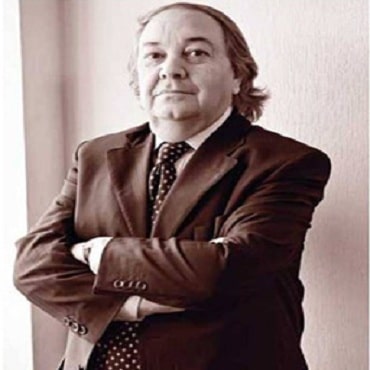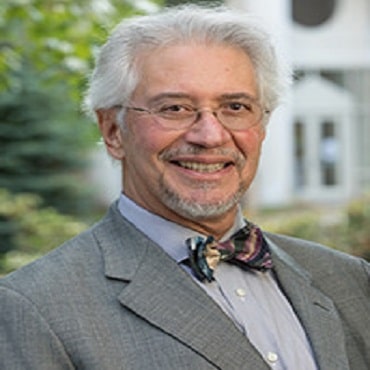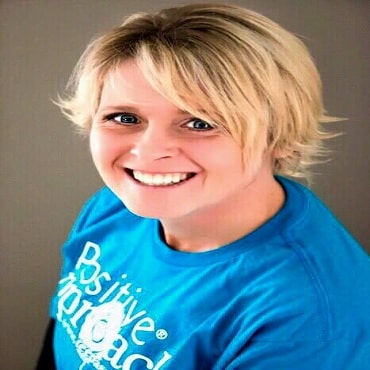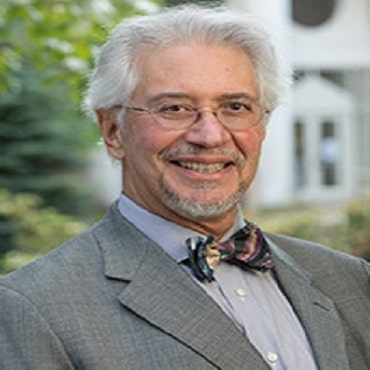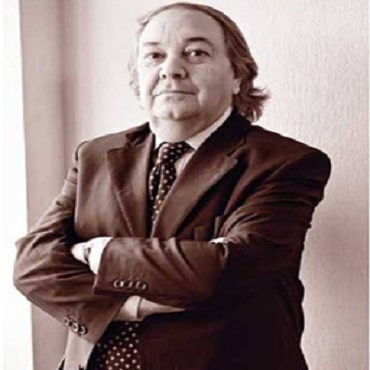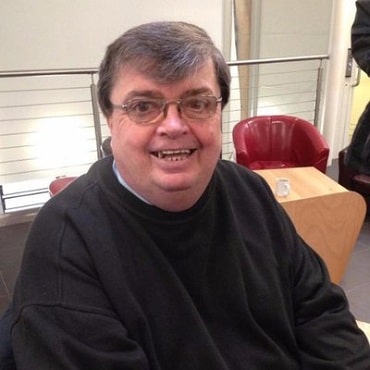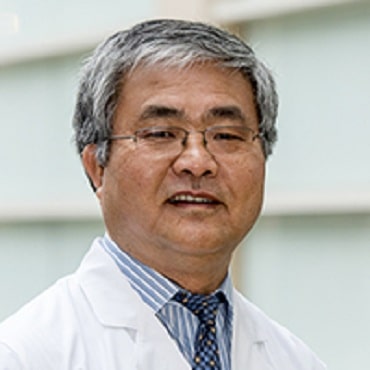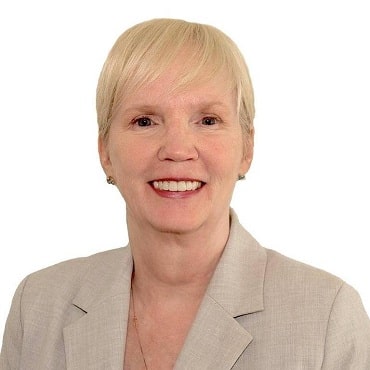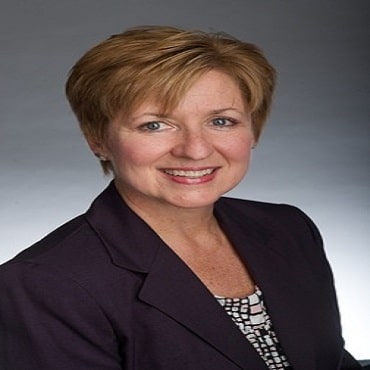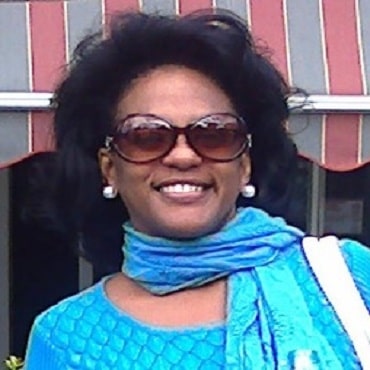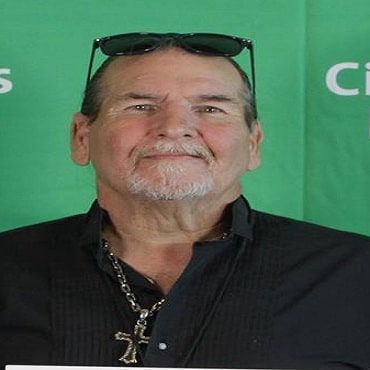Scientific Program
Keynote Session:
Title: The Neuroimmunomodulation theory in Alzheimers disease
Biography:
Dr. Maccioni is Professor of Neurology and Neurosciences, University of Chile, Director of the Laboratory of Neurosciences and the International Center for Biomedicine (ICC). He served as Professor at CU University, U.S.A. He received Doctoral degree in 1975, was a postdoctoral fellow at the NIH and the CU Medical School. Maccioni is a world-class scientist that has made some of the leading contributions to the study of Alzheimer’s disease (AD). His discoveries on the role of tau in AD, his neuroimmunomodulation theory of neurodegenerative disorders, the design of a new in vivo neuroimaging technology, novel biomarkers for its early diagnosis and innovative therapeutic approaches are among major contributions. He has served as Senior Editor and Regional Editor of the Journal of Alzheimer´s Disease and several other journals. Co-author with George Perry of the book “Current Hypotheses and Research Milestones in Alzheimer´s Disease”, among other 12 books. He is considered by the scientific community as a natural leader for his solid publications, but also for directing global projects for science development and human welfare. Maccioni is the author of around 200 publications in high-impact journals and 18 patents. His scientific findings are characterized by innovative approaches to elucidate complex problems of medical research. He is Scientific Director of Neuroinnovation, advisor for several international programs an elected member of the Danna Alliance for Brain Initiatives.
Abstract:
Alzheimer’s disease (AD) is a progressive neurodegenerative disease, characterized by behavioral disorders, loss of memory and cognitive impairment affecting more than 48 millions worldwide. Cumulative evidence shows that innate immunity participates in the pathogenesis of AD. According with our neuroimmunomodulation hypothesis, microglial activation modifies the cross-talks between microglia and neurons. Thus, glial activation by the so called “damaged signals” triggers a cascade of pathological events leading to hyperphosphorylation and oligomerization of the tau protein, associated with cognitive impairment. This activation depends on the type and intensity of the stimulus. In AD, a persistently active microglial condition could generate neuronal damage and neurodegeneration favored by ApoE4, causing the release of pathological tau toward the extraneuronal environment. Released tau would subsequently cause reactivation of microglial cells, thus promoting a positive feedback and generating continuous cell damage. However, from the pathophysiological point of view, AD is significantly more complex that just inducing a loss of memory. As initial events in the pathogenesis of this neurodegenerative disease, alterations in the dopaminergic pathway together with serotonin depletion in the elderly lead to late onset depression according with recent evidences. These events seem to occur together with immunomodulatory alterations that lead to tau oligomerization in the course of neurofibrillary tangles formation. Interestingly, mood disorders are followed by neuroinflammatory processes and structural/functional alterations that lead to cognitive impairment in the context of AD (supported by Innova Corfo and the ICC).
Title: Diagnostic issues and the nature of the relationship between dementia and depression
Biography:
Donald A. Davidoff, Ph.D., is Chief of the Department of Neuropsychology and director of the Neuropsychology Fellowship Program at the McLean Hospital, Harvard Medical School. Dr. Davidoff is also an assistant professor in the Department of Psychiatry, Harvard Medical School and Psychologist, McLean Hospital. He founded the Geriatric Neuropsychiatry Unit in 1993 and was its Psychologist-in-Charge for 15 years, retiring from that position to focus on research and the Department of Neuropsychology. He has published numerous papers and book chapters on the diagnosis and management of patients with dementia, treatment resistant affective disorders, optimal aging, the neurocognitive basis of Hoarding Disorder, nonverbal learning disabilities and affective and motivational aspects of memory functioning. He is a sought after speaker for interdisciplinary conferences and has taught courses at the American Psychiatric Association Meetings consistently for the last 15 years. He is an award-winning teacher and has mentored a large number of multi-disciplined professionals including pre- and post-doctoral psychologists and psychiatry residents. He is a member of the core faculty of the Harvard-South Shore Residency Training program and the McLean-MGH Harvard Residency Training Program.
He has served as chairman of the Commissioner’s Task Force on Alzheimer’s disease and on the State House Task Force on Elder Mental Health. He was a board member (for 12 years) and treasurer of the Alzheimer’s Association of Massachusetts.
He is a senior consultant for the Levinson Institute (a psychologically oriented organizational consulting group) and teaches the Harvard Medical School’s CME course on Leadership for Physician Executives.
He has also co-authored five mystery novels (Amnesia, Addiction, Delusion, Obsessed, and Guilt) under the pseudonym GH Ephron.
Abstract:
There are many questions and conflicting research concerning the nature of the relationship between depression and dementia, i.e., are they coincidental, unidirectionally causal, mutually influencing or do they share a common pathophysiology.
Normal and pathological aging will be reviewed with a focus on the differences between crystallized and fluid intelligence. Effects of depression on cognition as individuals age are addressed. Depression primarily impairs reaction time and some executive functions, such as mental flexibility, such that executive functions can appear impaired. There has been no demonstration of a consistent disturbance in memory functioning resulting from depression alone, whereas dementia is characterized by memory loss. Nonetheless memory complaints are ubiquitous amongst the elderly, regardless of whether they are healthy, depressed or dementing.
No consistent and agreed upon terminology is apparent throughout the literature on the relationship between dementia and depression, confounding a current understanding. For example, DSM-5 criteria for a diagnosis of depression may currently result in an under-reporting of major depression because elder patients tend demonstrate fewer symptoms and tend to focus on somatic and/or cognitive complaints rather than on mood issues. Thus, a nosology is proposed to help clarify these issues.
Depression confounds the diagnosis of dementia and vice versa. Current research has not provided a definitive understanding of this complex relationship. Recent studies have suggested that the magnitude and trajectory of depressive symptomatology have been underappreciated.
Perhaps the single greatest problem in understanding the relationship between dementia and depression is the heterogeneous nature of the illnesses themselves. Clarification can only come when careful specification of each group is made. In effect, apples must be compared with apples and not with oranges.
Title: Dementia is a disease of the ependymal layer: Novel theory from looking at cognitive impairment in multiple sclerosis
Biography:
Dr Philip McMillan is a Consultant in the NHS with over 23 years of medical expertise. His primary focus has been around Geriatrics and Neurological Rehabilitation and has developed unique perspectives on the capacity of the brain to recover from injuries and disease. Through international collaboration he has proposed a nutritional protocol for dementia reversal and has recently had a breakthrough theory on the pathology of dementia. His current aim is to lead the field of dementia to a new direction of research and treatment of this devastating disease.
Abstract:
The intricacies of dementia are explored in relation to varied studies on brain atrophy in multiple sclerosis and used to delineate the primary pathology of the latter.
The theory examines the high frequency of cognitive impairment (Jongen 2012) in Multiple Sclerosis and its early manifestation during the disease. The fact that there is associated brain atrophy cannot be explained by the degree of damage to neurons. (Carlos 2015) noted a 5 to 10 times greater rate of atrophy in Multiple Sclerosis.
The cognitive changes with Multiple Sclerosis are then correlated embryologically to the subependymal zone (Kazanis 2009) explaining the pathology of brain atrophy and why we have not made more progress through research.
Our understanding of the blood CSF barrier and the brain CSF interaction is poorly understood and probably holds the key to the symptoms of dementia (Erikson 2013). This interaction between the CSF and brain interstitial space is coordinated by the ependymal and subependymal zone of the brain. This is a novel concept that will aim to explain the links of all forms of dementia, as well as directing fertile areas for research.
Title: The Amica cognitive well-being program: maximizing capacity for residents
Biography:
Heather Palmer is currently the National Director, Cognitive Well-Being and the Founder and Director of Cognitive Rehabilitation for Maximum Capacity Inc. After completing her PhD in Neuropsychology from the University of New South Wales Australia, she carried out a 3 year postdoctoral fellowship at the Rotman Research Institute, Baycrest Centre and then went on to become the Research Director for the Alzheimer Society of Canada. With over 30 years of scientific and clinical experience in the area of brain-behaviour relationships. Heather has been inducted into the Havergal College Hall of Distinction for her contribution to seniors brain health. Heather has many publications and speaks internationally on the topic of neurocognitive rehabilitation for seniors and cancer survivors. She designs and teaches techniques and strategies to help people ‘re-wire’ their brain so they can think, feel and function their best. Currently she provides supportive, educational and innovative cognitive well-being programs for all communities managed by Amica Mature Lifestyles, with a primary focus on the Memory Care and Assisted Living neighbourhoods.
Abstract:
Physical aging is widely accepted, and as a result, adaptive devices, tools and supports are implemented to compensate for physical challenges. Cognitive aging and dementia, on the other hand, tend to be stigmatized, with less awareness, understanding and acceptance. As a result, techniques and strategies to address both normal and abnormal cognitive aging are underutilized. The Amica approach to supporting cognitive well- being has a conceptual framework that applies to all Residents, whether they live in Independent living, Assisted Living or Memory Care. Through awareness, education and Team Member training, we maximize how Residents think, feel and function. Team Members receive extensive Amica-developed training in the areas of: 1) normal and abnormal cognitive aging, 2) personalization through Discovery, 3) a Cognitive Aging and Dementia Interactive experience (CADIE), and 4) a unique Behavior Support Program (BSP) that shares responsibility across all Team Members. Focusing on simple, effective and sustainable approaches, Residents live purposeful and meaningful lives with support that is balanced across multiple domains including an increased emphasis on goal attainment and psychological well-being. Empowering and supporting Residents to maximize potential is the goal. In this session the Amica Cognitive Well-Being Program will be shared with heightened emphasis on; 1) the culture change that was required, 2) multiple success stories, 3) the role and emphasis on neuroplasticity, and 4) general principles that can be utilized to benefit Residents living in any community, any environment, and anywhere along their cognitive journey.
Title: Workshop on: A therapeutic approach towards dementia care
Biography:
Dawn Wiggins RPN, Certified PAC Consultant, Trainer and Mentor (Teepa Snow), Certified Dementia Practitioner and President and Director of Operations of: ‘New Dementians Professional Healthcare’.
Dawn a registered nursing professional in the province of Ontario and has over 20 years of frontline healthcare experience. She leads a dynamic team of healthcare experts dedicated to one thing-making a positive impact in the lives of people living with dementia and their care partners. Rather than focusing on “tasks” like most people, Dawn and her team focus on “caring” and bringing as much joy as possible to the lives of each and every client, everyday.
Dawn has served in a number of different capacities over the years and has a wealth of experience in acute care, long term care, psychiatric care, home care, rehabilitation and palliative care.
She has built and managed world class dementia care neighbourhoods at the institutional level.
Her greatest passion, however, is caring for people living with dementia and their care partners. PAC skills help her have a deep and unique understanding of the disease that allows her to connect with her clients and their families in a very special way. New Dementians tm Memory Care Revolutionized is working with expert TEEPA SNOW http://teepasnow.com/ on her Positive Approach to Care Team.
Abstract:
Anyone who works in health care knows the reality of the statistics: the incidence of dementia is on the rise and the number of people living at home with later stages of the disease is also increasing. We are all hopeful for a cure, but what do we do in the meantime? This highly interactive and hands-on workshop will introduce renowned dementia care expert Teepa Snow’s Positive Approach to Care™ philosophy and associated care skills. These skills combine care techniques that match what is known about brain function changes through dementia, with the ability to complete dynamic assessment “in the moment” for all caregivers. Using these tools has been shown to reduce the incidence of responsive behaviours, which can delay institutionalization but more importantly, enhance quality of life both for people living with dementia and, also their formal and informal care partners. Additional benefits are increased efficiency and effectiveness by shifting focus from task-driven to patient-driven care.
At the end of the session, participants will have a toolkit of simple, practical, hands on skills that can be used immediately to aim for excellence in care. In the words of Teepa herself, “Until there’s a cure…there’s care.”
Title: Special Session on: Mild neurocognitive disorders: improving detection, diagnosis, and early interventions
Biography:
Donald A. Davidoff, Ph.D., is Chief of the Department of Neuropsychology and director of the Neuropsychology Fellowship Program at the McLean Hospital, Harvard Medical School. Dr. Davidoff is also an assistant professor in the Department of Psychiatry, Harvard Medical School and Psychologist, McLean Hospital. He founded the Geriatric Neuropsychiatry Unit in 1993 and was its Psychologist-in-Charge for 15 years, retiring from that position to focus on research and the Department of Neuropsychology. He has published numerous papers and book chapters on the diagnosis and management of patients with dementia, treatment resistant affective disorders, optimal aging, the neurocognitive basis of Hoarding Disorder, nonverbal learning disabilities and affective and motivational aspects of memory functioning. He is a sought after speaker for interdisciplinary conferences and has taught courses at the American Psychiatric Association Meetings consistently for the last 15 years. He is an award-winning teacher and has mentored a large number of multi-disciplined professionals including pre- and post-doctoral psychologists and psychiatry residents. He is a member of the core faculty of the Harvard-South Shore Residency Training program and the McLean-MGH Harvard Residency Training Program.
He has served as chairman of the Commissioner’s Task Force on Alzheimer’s disease and on the State House Task Force on Elder Mental Health. He was a board member (for 12 years) and treasurer of the Alzheimer’s Association of Massachusetts.
He is a senior consultant for the Levinson Institute (a psychologically oriented organizational consulting group) and teaches the Harvard Medical School’s CME course on Leadership for Physician Executives.
He has also co-authored five mystery novels (Amnesia, Addiction, Delusion, Obsessed, and Guilt) under the pseudonym GH Ephron.
Abstract:
This talk is designed to help clinicians understand the evolution, detection, and clinical significance of Mild Cognitive Disorder (MCI), which in DSM-5 is now termed Mild Neurocognitive Disorder (MiND). Beginning in the 1980’s the idea of a transitional stage between normal cognitive functioning in older adults and dementia began to be explored. Before that, mild cognitive symptoms were often attributed to depression or anxiety. The term MCI was first used by Reisberg and colleagues in 1988 to refer to Stage 3 on the Global Deterioration Scale. In addition, the Clinical Dementia Rating scale sought to identify early signs of dementia with an eye towards diagnosing dementia at the earliest point possible so has to maximize the efficacy of interventions. By 1999, the idea that MCI could be a prodrome or risk factor for further cognitive decline into dementia began to take hold. Initially, just as with the earlier DSM criteria for a diagnosis of dementia, early conceptions of MCI focused on the presence of memory impairments. Since these early conceptualizations, MCI has come to be associated with an acquired decline in one or more of six cognitive domains: attention, memory, language, visuospatial, executive function, or social cognition, in the context of independence in everyday day activities (i.e., complex instrumental activities of daily living). Compensatory behaviors are required to deal with this cognitive decline that is significant but not disabling.
Many elders note mild to moderate changes in cognitive functions and express concern about progression. In fact, memory complaints are ubiquitous amongst older adults. Concerns about memory or other cognitive faculties may lead an older adult to seek evaluation at this stage. Complicating accurate diagnosis is the fact cognitive symptoms often accompany psychiatric issues such as depression in older adults. Thus, an accurate diagnosis of MCI is critical to both rule out treatable causes of cognitive impairment and because MCI can represent the prodromal stage of major neurocognitive disorder, whether associated with Alzheimer’s disease or another etiology. MCI is the single best predictor of future dementia. Yet at the current time, even with the diagnostic criteria described in the DSM-5, the construct of MCI lacks clear operational clarity. While the addition of biomarkers to the diagnostic process is promising, they still require more investigation. At the current time the use of neuropsychological testing in the context of a multidisciplinary approach remains the most efficacious method to yield both an accurate diagnosis and a practical treatment plan.
Title: Special Session on: Nutraceutical compounds with proven effectivity for Alzheimers treatment based on clinical trials.
Biography:
Dr. Maccioni is Professor of Neurology and Neurosciences, University of Chile, Director of the Laboratory of Neurosciences and the International Center for Biomedicine (ICC). He served as Professor at CU University, U.S.A. He received Doctoral degree in 1975, was a postdoctoral fellow at the NIH and the CU Medical School. Maccioni is a world-class scientist that has made some of the leading contributions to the study of Alzheimer’s disease (AD). His discoveries on the role of tau in AD, his neuroimmunomodulation theory of neurodegenerative disorders, the design of a new in vivo neuroimaging technology, novel biomarkers for its early diagnosis and innovative therapeutic approaches are among major contributions. He has served as Senior Editor and Regional Editor of the Journal of Alzheimer´s Disease and several other journals. Co-author with George Perry of the book “Current Hypotheses and Research Milestones in Alzheimer´s Disease”, among other 12 books. He is considered by the scientific community as a natural leader for his solid publications, but also for directing global projects for science development and human welfare. Maccioni is the author of around 200 publications in high-impact journals and 18 patents. His scientific findings are characterized by innovative approaches to elucidate complex problems of medical research. He is Scientific Director of Neuroinnovation, advisor for several international programs an elected member of the Danna Alliance for Brain Initiatives.
Abstract:
Long-term research efforts on the action of single-molecule drugs on specific brain targets have proven their inefficiency for the treatment of Alzheimer´s disease (AD). Instead, the strategy of using natural compounds that tag several targets appears to be a promising solution to control the progress of this devastating disease. The latter strategy may face the need to rule out the presence of toxic molecules in the natural compounds. Therefore, an approach to use nutraceuticals with both acute and chronic toxicity assays and clinical trials on their effectivity is an attractive avenue. In this context, Evidence-based Nutraceutical Compounds (EBNC), containing bioactive molecules of demonstrated efficacy and biological security are opening solutions for a modern preventive medicine, and as potential solutions for AD. EBNC contain molecules of food supplements, that may exert pleotropic effects in controlling AD, and therefore can be used for the prevention or treatment of a disease. Their quality should be assured by rigorous processes of extraction from natural resources and GMP regulations. EBNC must exhibit sound preclinical studies and multicentric, double-blind, placebo-controlled clinical trials. These compounds are supported by major advances in genetics, epitranscriptomics and modern neuropharmacology, and are certainly opening a solid pathway toward the control of dementia.
Oral Session 1:
- Dementia, Dementia Care & Awareness, Alzheimers disease, Treatment Strategies, Neuroimaging
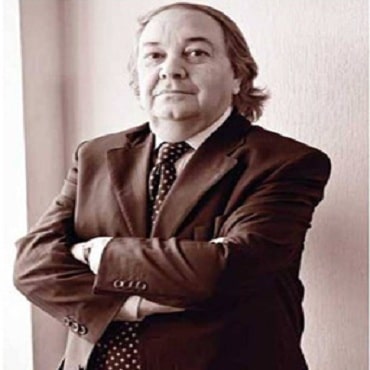
Chair
Ricardo B. Maccioni
University of Chile
Chile

Co-Chair
Heather Palmer
Amica Senior Lifestyles
Canada
Title: Video presentation on: If I can do this living with dementia, anybody can: Norman McNamara
Biography:
Norrms McNamara is a global advocate for dementia, and as a man from the UK also living with a diagnosis of Lewy Body dementia, he has been very active in working to help reduce stigma of dementia. His accomplishments include organizing the first ever Dementia Awareness Day (now an annual event), founding the Torbay Dementia Action Alliance, speaking to police and other first responders about their role in the dementia crisis, and authoring four books. He is also a frequent speaker and blogger on the topic and the inspiration behind the Purple Angel, which is quickly becoming the international symbol for dementia awareness.
Abstract:
I was diagnosed aged just 50 with dementia, I had no idea but my wife Elaine (Angel) as I call her, was a professional carer/caregiver for 30 years + and she knew the signs so took me straight to the Doctors. When I was diagnosed I was devastated, I have said so many times since that I had already lost my own grandmother and father to this awful illness so I have already read the book, seen the last page, and read the last line, unless they find a cure, I KNOW what's about to happen, how it ends and because of that, went on a downward spiral for months after.
The more I looked around the more I realised there was very little out there for those with dementia and especially at the age of 50.I realised we had to do something that had never been done before which was to approach as many people as possible, with information and educate them a little in dementia. Nothing too complicated, just the basics to wet their appetite and get them to look up for more info on it.
As I write this today I can confirm that the Purple Angel campaign is now known as the Global Purple Angel campaign, we are recognised in over 55 Countries worldwide, we have nearly 1,000 Global purple Angel Ambassadors all over the world, and always looking for more. We were the first ever to open a memory cafe in the United States, Africa and Turkey.
Who cares if I can't remember what happened yesterday? As long as today is okay that's fine with me!!! Maybe keeping myself so busy has kept me as well as I am today. I think as an organisation we have helped others together and as one “TOGETHER WE ARE STRONG” The purple Angels Motto is “INCLUSION AND ENGAGEMENT FOR ALL”.
Title: Quantitative analysis of cerebral metabolic changes in Alzheimers disease with positron emission tomography
Biography:
Fangyu Peng graduated from Jiangxi Medical College in 1982 and obtained PhD in Medical Microbiology and Immunology from University of South Florida, Tampa, USA. He is the Director of PET Translation Imaging, UT Southwestern Medical Center, a premier academic medical center at USA. He has published more than 50 papers in reputed journals and has been serving as an editorial board member of Journal of Alzheimer’s Disease.
Abstract:
Aging is one of the major risk factors for development of Alzheimer’s disease (AD). Brain aging is associated with various metabolic changes that play a role in the pathophysiology of AD. Using 2-deoxy-2-[18F]-fluoro-Dglucose (18F-FDG), a radiolabeled glucose analogue [1], changes of brain glucose metabolism can be evaluated with positron emission tomography (PET) imaging [2, 3]. In addition to visual assessment of altered biodistribution of 18F-FDG on PET images, semi-quantitative analysis of 18F-FDG radioactivity localized within a brain region of interest (ROI) increase sensitivity and specificity of 18F-FDG for diagnostic imaging of AD [Figure 1]. PET quantitative analysis is a useful technology for elucidation of the role of various metabolic changes in development and pathophysiology of AD [4].
Title: Prepare to care- what every adult needs to know about Alzheimers/dementia before and after it strikes home
Biography:
Bobbi Carducci is a Caregiver Advocate, Support Group Leader, Author and National Speaker on Caregiver Issues in the U.S. In-home caregiver for seven years for father-in-law with multiple comorbidities, including, Lewy Body dementia and schizophrenia. Author, Confessions of an Imperfect Caregiver and Caregiver You Are Not Alone.
Abstract:
According to the Alzheimer’s organization, at present one in three seniors will die from some form of dementia and the numbers are expected to double or triple in the next ten to fifteen years. As the numbers of people needing care increases the need for in-home caregivers will follow. Beds in hospitals, nursing homes, and memory care facilities will fill and the costs will increase.
Adults in their thirties, forties, and above need to know what is coming in the next ten to fifteen years and how important it is to begin to prepare now.
This presentation will include:
Alzheimer’s and Dementia – So much more than a memory problem.
- The difference in memory loss between normal aging and Alzheimer’s or one of the many other forms of dementia.
- Traumatic brain disease and the effects on behavior.
Financial and personal impact of dementia on the entire family.
- Creating a care team before it is needed.
- The need for long term care insurance.
- Power of attorney or guardianship?
- Home care or residential care? There is no wrong answer.
How to Resist Trying to Manage the Unmanageable and Ease Tension at Home
- Suggestions on how respond to the often confusing and upsetting dementia behaviors.
- What to Do When You Don’t Know What to Do.
Where to Go for Help
- Caregiver support groups
- Caregiver conferences
- Dementia Care Homes
Title: IONIS - Indoor and outdoor solution for dementia challenges
Biography:
Neja Samar Brencic is a researcher and developer at the IZRIIS institute. She holds a Masters in psychology degree at the University of Ljubljana. She has dedicated last 15 years to develop end-user experience and validation programs in Slovenia in EU.
Abstract:
Demographic changes and the aging population in Europe increase the demand for some particular ICT services – including e-health and e-care services. The reasons are multiple: we want to address specifically the increase of symptoms related to dementia. In Slovenia we have 33.000 diagnosed patients. Many professionals at the clinics recognize that there is no connection between the care at the clinic and home care. What to do with the patient with dementia after they leave the hospital?
IONIS project financed within the EU-AAL program perspective aims at developing a European-wide service concept specifically for people with dementia and their families.
At the moment in some countries in EU, patients at home use bracelets, watches and fitness bands connected to smart phones to give caregivers some idea of what is going on with the patient. In Slovenia this is almost non-existent. Currently IONIS is developing solutions to fill the gaps with integrated and validated health monitoring, home automation, and personal agenda with reminders, alerts, caregiver administrative tools and profile specifically for dementia patients. The IONIS platform will offer integration of services and technology to benefit both patients and caregivers.
IONIS will create the network of support for the patients, families and health professionals.
Such programs as IONIS will help to support the continuation of care form the clinical environment to the home care environment.
Title: Circulating autoantibodies against myelin sheath are elevated in patients with atrial fibrillation
Biography:
Oxana Galenko is a Clinical Research Senior Scientist at the Department of Cardiovascular Research of Intermountain Heart Institute at Intermountain Medical Center, Murray, UT. She has published and presented more than 30 papers and abstracts at the reputed journals and international symposia such as American Heart Association, Heart Rhythm Society and American College of Cardiology annual meetings. Her research focuses on understanding the association of cardio vascular diseases with cognitive decline and dementia at molecular level.
Abstract:
Atrial Fibrillation (AF) is associated with high risk of cognitive decline and dementia. AF patients have elevated circulating levels of cerebral injury markers, as we demonstrated previously. Peripheral presence of central nervous system (CNS) specific antigens may induce autoantibody production and initiate a cascade of neuroinflammatory events leading to subsequent cognitive deficit / dementia. We aimed to assess the plasma levels of autoantibodies against myelin basic protein (anti-MBP-ab) and myelin oligodendrocyte glycoprotein (anti-MOG-ab) in AF and no AF individuals. Subjects from Intermountain Heart Registry INSPIRE were included in the study;75 patients had a diagnosis of AF at the time of the blood collection and 25 of them were no AF-controls. All subjects have no history of prior stroke, cognitive decline, neurodegenerative disorders, CNS surgery or trauma. Assessments of auto anti-MBP-ab and anti-MOG-ab antibodies were performed by EIA (My BioSource, Inc). There were no differences in gender (p=0.16) and age (p=0.24) between AF and no AF groups. The administration of anti-platelet and anti-coagulant medications was higher in the AF group (84% vs 36%). The univariate values of auto ab are shown in a Figure. After adjustment for age and anticoagulation therapy, Anti-MOG-ab remained significantly higher in AF (p=0.035). In this small experimental sample, the AF patients demonstrated higher plasma levels of anti- MOG-ab and a trend in elevation in anti-MBP-ab. Potential mechanistic role of these antibodies in the development of cognitive impairments in AF patient requires further study.
Title: Treatment of dementia symptoms: a person-centred approach
Biography:
Laurie Gunter Mantz is an Occupational Therapist, a Certified Dementia Trainer, and the founder of Dementia Training for Life, LLC, an organization that specializes in the training of healthcare professionals on the care of those with neurodegenerative disorders. With more than 30 yrs. of clinical and educational experience Laurie’s concentration is now to facilitate dementia capable care from the home, supported care, hospitals and LTC to enable independence and quality of life throughout the life spectrum.
Abstract:
According to the Oxford dictionary, the definition of purpose is “the reason for which something is done or created or for which something exists.” Every person, despite illness, disability or age needs purpose. Humans need a reason to “be”, and that purpose is as unique and significant as every single being, even with dementia.
Despite the lack of success in discovering disease modifying medications, behavioral science has shown significant advances in addressing many of the symptoms of neurodegenerative conditions, improving quality of life, reducing the use of antipsychotic medications, and advancing person-centered care throughout the disease process. The keys to a rewarding, happy and purposeful life, while learning to accommodate to the changes from a brain disorder, require an educated support system, an environment adapted to meet the individual’s needs, the use of verbal and non-verbal communication, and flexible care providers.
This presentation will demonstrate the benefits of non-pharmacological interventions in all areas of life and care, from the home to the hospital, for those living with and caring for neurodegenerative conditions.
Title: Relationship between chronic infection by Toxoplasma gondii and Alzheimers disease
Biography:
Iris Gladys Zayas Martínez, 49 years old, graduated in medicine 29 years ago at the Medical University "Carlos J. Finlay" of Camagüey, Cuba. 2nd Degree Specialist in Microbiology, graduate of Master in infectious diseases and tropical diseases at the Institute of Tropical Medicine Pedro Kouri (IPK), Cuba.
Member of the Cuban Scientific Society of Parasitology and Microbiology for 22 years. I have participated in 18 national and international conferences and congresses in Cuba and in the 2nd international congress of the Girassol Clinic in Luanda, Angola. Publications: 5 scientific articles in national journals.
I am currently working in the department of parasitology, in the laboratory of Toxoplasma of the Tropical Medicine Institute Pedro Kouri (IPK). Cuba.
At this moment, a research project is underway (Toxoplasma gondii infection and Alzheimer's disease. Demonstration of possible association in Cuban senior citizens. It will be held in our Institute in collaboration with the Dementia Consultation of the Neurology Institute, Havana, Cuba.
Abstract:
Toxoplasma gondii (T. gondii) is one of the most widely distributed neurotropic pathogens in the world; approximately, one third of the world population is infected by this parasite, the causative agent of Toxoplasmosis. Historically, chronic infection has been considered a latent stage and was only associated with pathogenesis in individuals with some compromise of their immune system. Alzheimer's disease (AD) is the most frequent of neurodegenerative diseases; it is also the most common cause of demential syndrome. The suggested conference is aimed at highlighting the main aspects that relate to chronic T.gondii infection and AD. Recent studies have shown that chronic infection by this pathogen causes neurophysiological changes, in wish three mechanisms are involved: the immune response to the parasite, hormonal changes and variations in neurotransmitters, all leading to neuroinflammation. All those relate the parasite with the pathogenesis of dementia, especially those that produce neurodegeneration. The role of T.gondii in the development of AD remains a hotly debated topic, with multiple investigations being carried out to try to link this parasite to that entity and determine whether infection by this entity is a risk factor or can play a role protector in the appearance of EA.
Keynote Session:
Title: Special session on: Unforgettable- the miracle of music & mind
Biography:
Wayne “Woody” Mesker is the Outreach / Creative Advocacy Director of the Alive Inside Foundation. A life-long Music Lover who just celebrated his 67th Birthday in January has been a performer since he had a vocal solo during his Christmas Concert when he was in first grade. He is also the Founder of Rock Against Dementia (RAD). Along with Purple Angels’ Norman McNamara & Jane Moore he co-founded World Rock Against Dementia (WRAD) in 2016. The event has produced a growing Global impact.
Abstract:
It is a well - documented & proven fact that one of the last parts of the brain to be affected by Alzheimer’s disease or other types of Dementia is the part that recognizes & responds to music
Our minds connect to music from pre-birth which presents us with an amazing opportunity to reach those with Dementia or other Cognitive issues especially when using Music that carries some personal / emotional connection.
We will show using video clips how effective this musical intervention is & include testimonials from Family members & volunteers from several of the Alive Inside Foundation’s projects about the “Unforgettable” difference this has made in the lives of the Elders with Dementia & in their own lives as well
I will share my own experience of watching Eleanor come Alive with a little love from two young volunteers & the simple act of listening to her favourite music as well as my experience & those of our young Avalon Park Middle School Choir (Just outside of Orlando) students from Florida.

